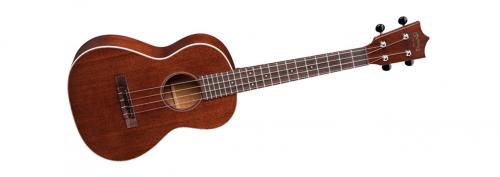
Establishing a right hold over such a dainty instrument will be
quite-enough easy – is this the thought you possess? Well, acquaint that the
reality is just the opposite.
Given to its small dimension and ignorant of the actual ‘grasping’
tricks, people end up holding the Ukulele way too tight – eventually choking
the resonance ought to be produced.
Such a phenomenon especially stands true for the youngsters
undertaking ukulele lessons for kids. Children’s
inherent behavior to ‘grab’ anything ‘stimulates’ them to create pressure over
the instrument – thereupon making it impossible for any sound to generate.
The little learners are also prone to experience the issue of
Ukulele accidental ‘slipping down’ (often getting crushed), for making a
wholesome ‘body contact’ with it.
Then, what are the exact ways to hold this unique 4-stringed
instrument? Some too savvy rules to remember?
Rather few simplest but adeptly effective tips for both child and
adult learners to practice over and perfect own posture with the gear.
Gain Your
Fittest Ukulele Hold
# 1 To Sit
or Stand?
In the opinion of the maestros at Stradivari Strings, sitting down
with your gear offers more steadiness to your overall position and allows to
easily balance the Ukulele above the upper thigh. Simply ensure to –
·
Sit upright by placing the body weight mainly upon
the chair’s front part
·
In a perpendicular style draw the instrument
close to your body, while keeping its neck directed towards the sky
·
Either straighten the elbow out or cuddle it
up as much possible; see which pose is emerging comfortable to readily reach
out for the fretboard
If desiring to stand and play:
Ø
Balance the body weight equally on two feet
Ø
Feel the stability, this is vital or else you
can lose control over own Uke in the middle of a performance
Ø
The tension from your arm placed over the
gear’s soundboard should be just-enough (without any help from fretting hand)
to not ‘suffocate’ it
Ø
Now bend the Ukulele’s neck a ‘bit’ upwards
Whether being seated or standing all
the way depends upon your individual choice and level of convenience
experienced over each, it is essential that –
§
For either of the posture, you stay relaxed to
consequently strum better and have a music stand at disposal for effortless tab
reading.
# 2 The 3
Prime Contact Points
Remember the mention about kids’ habit of clutching things as an
impediment to their Uke learning and proper hold? This gets especially
highlighted because of one ‘basic’ rule corresponding to Ukulele –
Ø
Touching it as minimum as gets possible
Sounding tricky? How to hold an instrument without even touching
it? Well, the puzzle turns a cakewalk for you – once you acquaint the 3 key
contact zones:
1.
Having Ukulele’s back in front of your body
2.
Placing the forearm at the exact rear portion
of the bridge and letting the hand lay naturally at the meeting point of the
body and neck
3.
Keeping the Uke’s neck (underside to be
specific) at the exact ‘between’ of your thumb and index finger
Moreover, as opine the revered ukulele lessons for beginners, do not press the instrument against
your chest –
ü
Since that hinders the original tonal quality
and timbre. Place it a ‘little far’ from you and have the headstock distant
from the gear’s main body part.
Positioning the Uke by pursuing these norms permit it to ‘breathe’
and resonate with optimum volume.
Expert
Tip: Once rightfully positioned, try to pluck your favorite Uke song (Broaden own access to famed Ukulele songs
by picking trending Ukulele apps from this list.) and see how easily you can maneuver
the strings and accomplish the right chord pattern.
# 3 The
Final Checklist
Guarantee that –
·
The thumb is placed right behind the neck
·
All playing fingers are at an adept alignment
with the frets
·
Instrument is vertically straightened in
relation to your belly
·
Writ is not impulsively revolving unless a
chord texture urges you to twist it
Hold it right to strum it great.
Post Your Ad Here
Comments